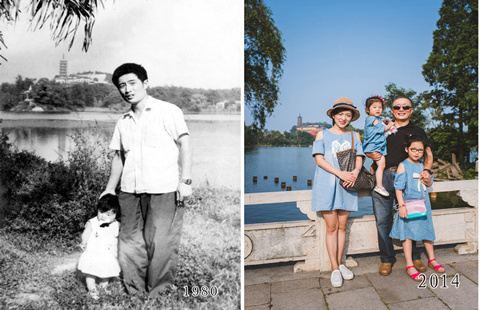Brazil in 'eclipse', China 'shines': Expert
Updated: 2015-02-09 05:08
By JACK FREIFELDER in New York(China Daily Latin America)
|
||||||||
Global business and investment environments are changing, which behooves global players to make adjustments, and when it comes to the bilateral relationship between Brazil and China, the latter has made some serious strides to rebalance its economy, while the former leaves a lot to be desired, according to an BRICS expert.
"From 1978 all the way to the wake of the Great Recession and the fall of Lehman Brothers, the international scenario was a scenario of deep globalization, great liquidity, great openness for trade," said Marcos Troyjo, director of the BRICLab at Columbia University's School of International and Public Affairs.
"In order to face deep globalization, Brazil and China adopted different strategies," Troyjo said. "For the two largest emerging markets in the world, China and Brazil, one is very clearly doing its homework by moving its strategy away from investment and toward consumption — that is the case of China."
On the other hand, Brazil has not enacted many of the structural reforms necessary to keep pace with the global economy, including: tweaks to labor legislation and an overhaul to its complex tax system.
Brazil's tax system is increasingly convoluted because the country's constitution allows many different government entities to levy taxes, including the federal government, each of the 26 states and the Federal District, and more than 5,000 municipalities, according to a 2014 report from PricewaterhouseCoopers.
"Brazil is pretty much like a Hamlet, 'To be or not to be?'" Troyjo said. "Should we become a nation more towards the Central-left of Latin America (i.e. Argentina or Venezuela) or is Brazil going to become like the Pacific Alliance countries that do not see regional integration as an end in itself, but rather as a platform to interact with other industrial hubs of the world?"
All the while, Troyjo said, China is undergoing a "great extroversion", and Brazil is experiencing the opposite — an introversion of development. This process touches on a number of sectors, including economics, politics, military importance, research and development and innovation, he said.
"China is relating to the world much more now than just as a producer of low value-added goods," Troyjo said. "Now China has a very strong presence in terms of international finance for countries in Africa and Latin America. Therefore, they are an important player in terms of international trade.
"China is becoming more and more of an important origin for foreign direct investment (FDI), by providing infrastructure for the developing world," he said. "So China is creating 'plurilateral' organizations where it has a dominant position, and this could go on and on. It's not just about economics, it's also geopolitics, politics of procedure, currency issues, some call it 'soft power'."
Troyjo said when former Brazilian President Luiz Inácio Lula Da Silva was elected in 2003, China's rise to economic prominence had already begun.
"The kind of rise that China was experiencing created this huge appetite for agricultural and mineral commodities, in which Brazil has comparative advantages," Troyjo said. "So the bilateral trade in 2001, which was about $2 billion a year, went up to nearly $90 billion a year in 2014, just a great expansion of trade."
China is Brazil's largest trading partner, accounting for 19 percent of Brazil's foreign trade, according to data from the World Trade Organization. The bilateral trade, despite a slight decrease, amounted to $78 billion last year, according to figures released by Brazilian authorities.
Carlos Tavares de Oliveira, author of nine books on China, said in a recent interview with Xinhua he remains "optimistic" on the matter of Brazil-China trade.
"Trade with China is going well," he said. "There was a reduction in the price of commodities, of iron ore, soybeans and especially oil, but China will continue to be Brazil's main trade partner."
He also said Brazilian companies should pay more attention to the new free trade zone in Shanghai as it offers opportunities for them to enter the Chinese market.
The problem with both China and Brazil going forward is that the period of deep globalization that lasted until 2008 has changed dramatically, Troyjo said.
"Countries have enacted industrial policies based on local content, there's more international trade protectionism, more restrictions toward investment, so both China and Brazil have to change their economic DNA," Troyjo said.
"Brazil behaved as if the golden cycle of commodities was going to continue forever," he said. "So that is why I see Brazil undergoing kind of an eclipse, while China's star is still shining very brightly."
- China seeks compensation from Mexico after high-speed project suspended
- Brazil in 'eclipse', China 'shines': Expert
- China to build two nuclear power plants in Argentina
- Sri Lanka in U-turn on port project
- Russia expresses optimism about solution to Ukraine issue
- China urges continued dialogue on Kosovo issue
Most Viewed
Editor's Picks

|

|

|

|

|

|
Today's Top News
China seeks compensation from Mexico after high-speed project suspended
China to build two nuclear power plants in Argentina
Xi plans to make state visit to US
Trade numbers take big hit in January
Search continues for 3 missing in TransAsia crash
'Most Beautiful' girl loses battle with cancer
Three more H7N9 cases reported in China's Guangdong
US invites President Xi for state visit
US Weekly

|

|















